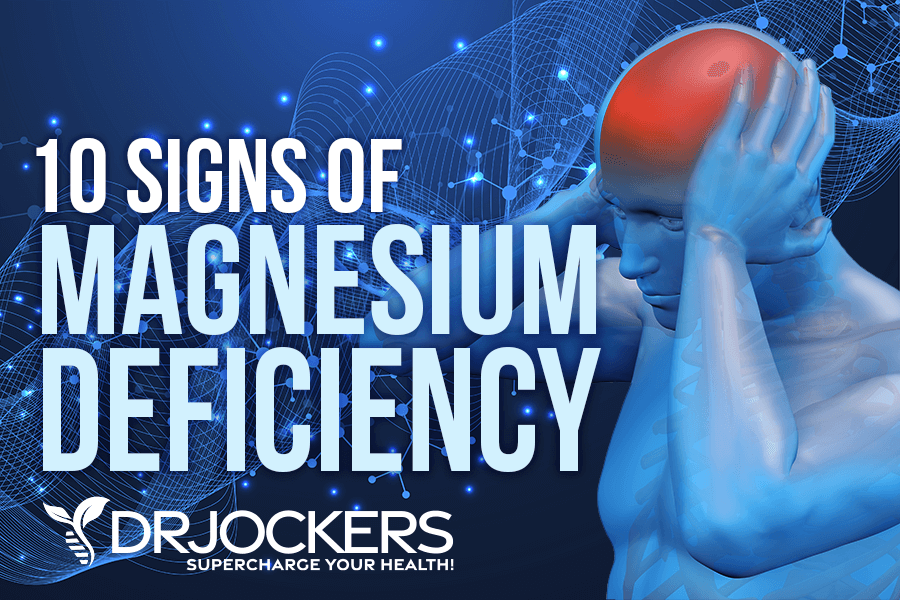 10 Signs Of Magnesium Deficiency
10 Signs Of Magnesium Deficiency
Magnesium is one of the most abundant minerals in the human body and is used in over 600 different physiological processes. Unfortunately, magnesium is also one of the most pervasive deficiencies in our society today.
Could the lack of magnesium be influencing your health negatively? This article breaks down the signs of a magnesium deficiency and the best ways to get more in your diet.
According to American neurosurgeon Norman Shealy, MD, PhD, almost every known disease is associated with a magnesium deficiency. This may sound like a bold statement at first, but it actually makes a lot of sense considering the number of roles it plays in the body. This also explains why there are such a diverse set of symptoms that occur when you are not getting enough of it.
There are 10 major signs that clue me in as to whether or not someone has a magnesium deficiency.
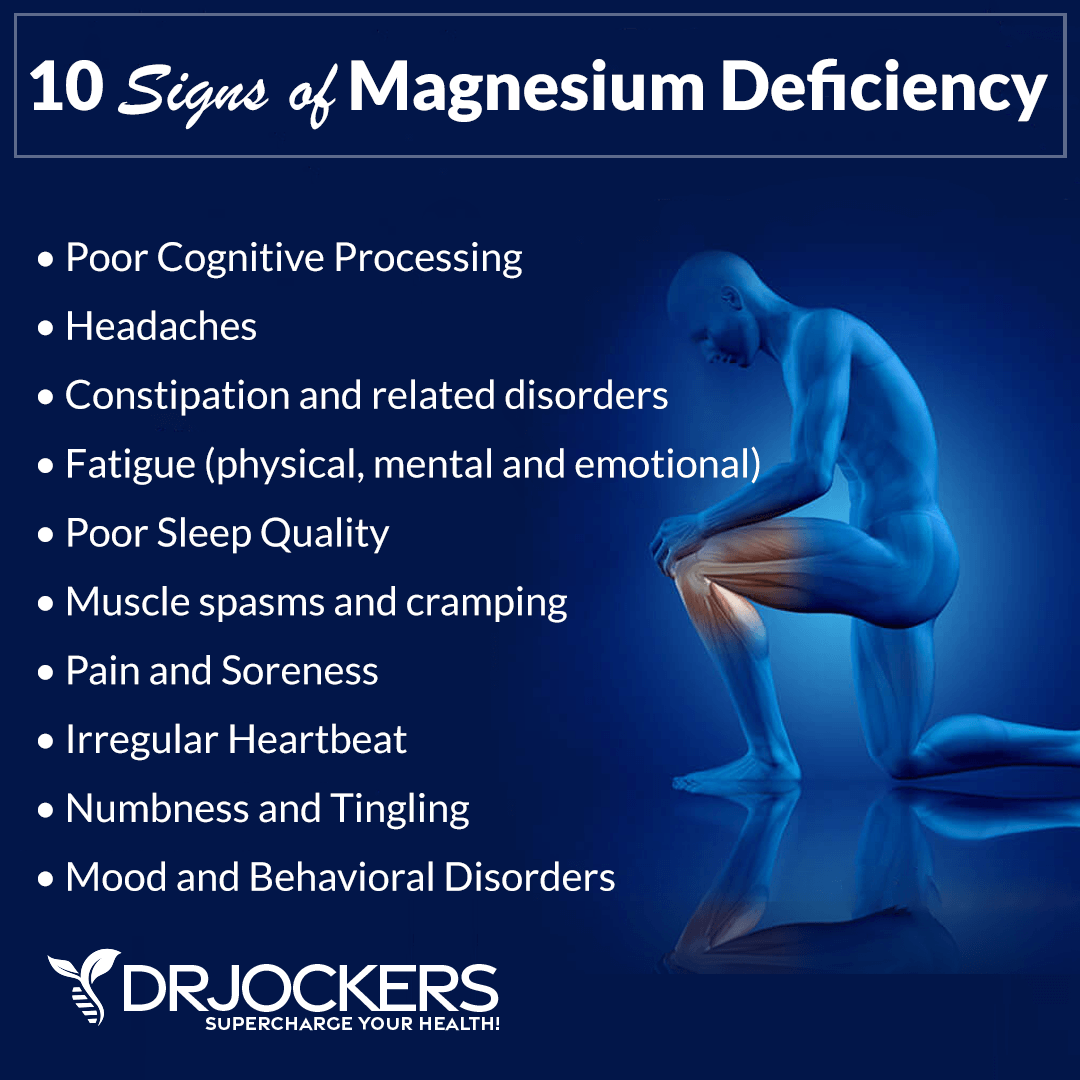
1. Poor Cognitive Processing
If you are dealing with frequent bouts of brain fog, poor concentration, or constant memory issues, you may have a magnesium deficiency. Structures within every cell of the body, called mitochondria, are responsible for producing the energy that the body uses for everything.
The brain contains the highest concentration of mitochondria in the male body (females have a higher concentration in their ovaries). Mitochondria are heavily reliant on magnesium for energy production, so a deficiency can hamper your brain performance significantly (1). It comes as no surprise that supplemental magnesium has been shown to improve learning and memory (2)!
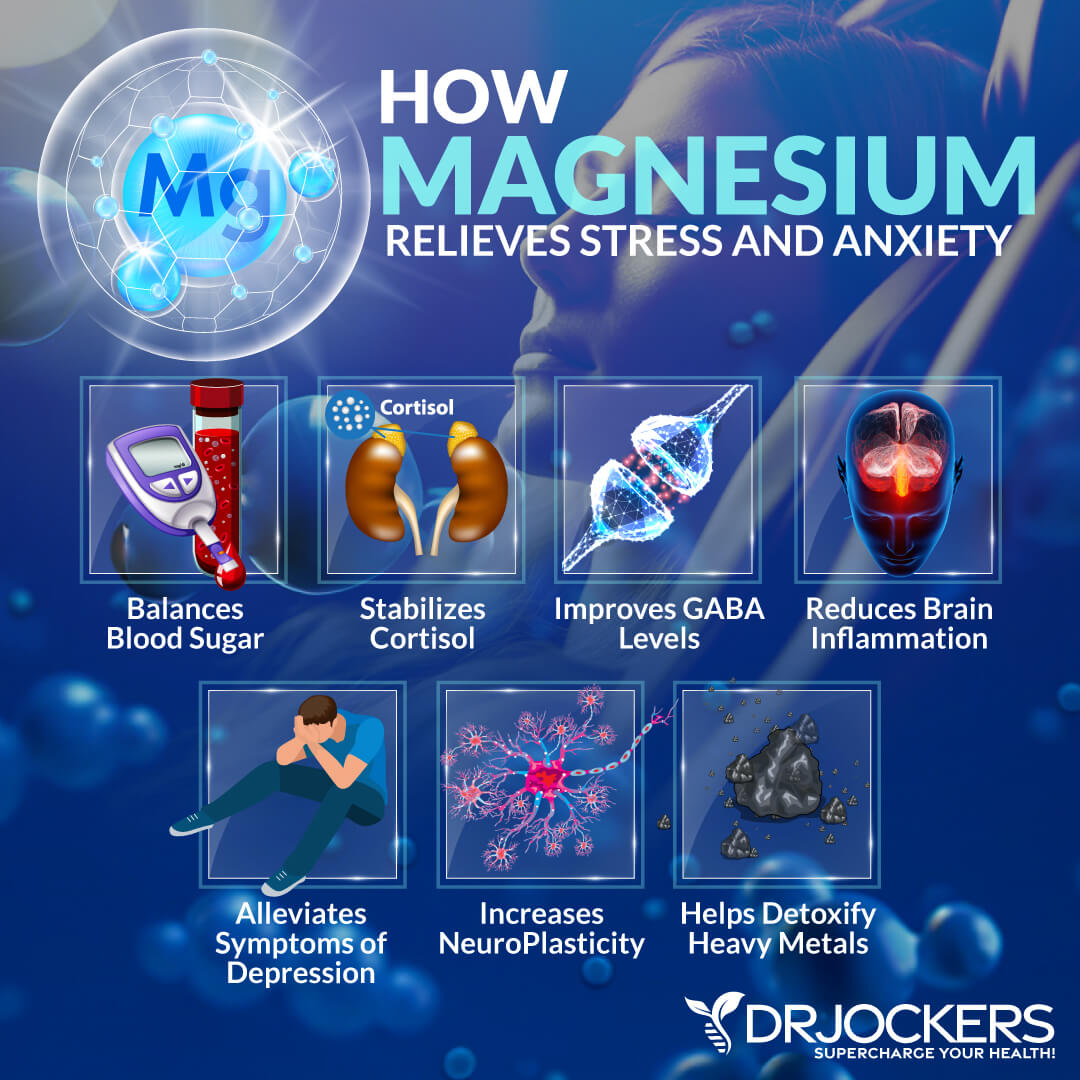
2. Headaches & Chronic Migraines
It has been found that sufferers of chronic migraines often have lower levels of magnesium in their bodies. Considering how important magnesium is for proper nerve function, this makes a lot of sense. Magnesium also plays the additional key role of regulating neurotransmitter production, which can also influence migraines.
Supplemental magnesium taken regularly has been shown to decrease both the frequency and intensity of migraine headaches (3). Additionally, magnesium has been shown to have the same effect on non-migraine headaches as well.
Much of this has to do with magnesium’s ability to help regulate calcium balance within neuronal cells. Too much calcium can lead to neurotoxic effects where the brain cells are overstimulated, and this is a major factor in headaches and migraine formation.
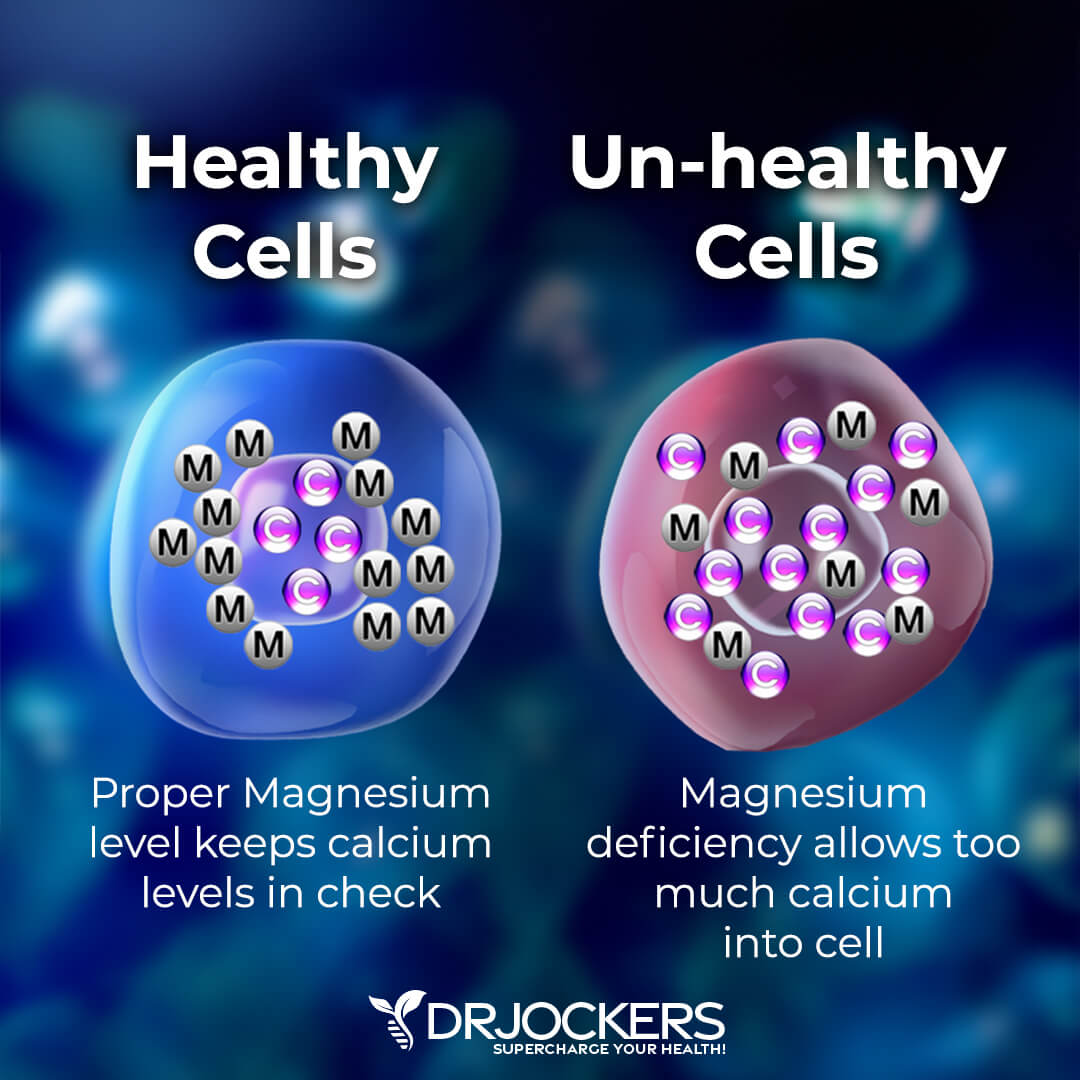
3. Constipation & IBS
Constipation is one digestive issue I hear all the time. Proper magnesium intake actually softens stools by drawing water into the bowels, supporting healthy elimination. If stools become too hard, they move slower through the colon and become a problem. This is why I always recommend magnesium when I hear this complaint.
For reference, an ideal stool should resemble type 3 or 4 on the Bristol stool chart below.
Additionally, magnesium plays a major role in regulating muscle contractions in the intestines and this is why a magnesium deficiency often results in constipation. In this way, magnesium can also be very helpful in relieving discomfort and cramping due to IBS or other similar conditions.
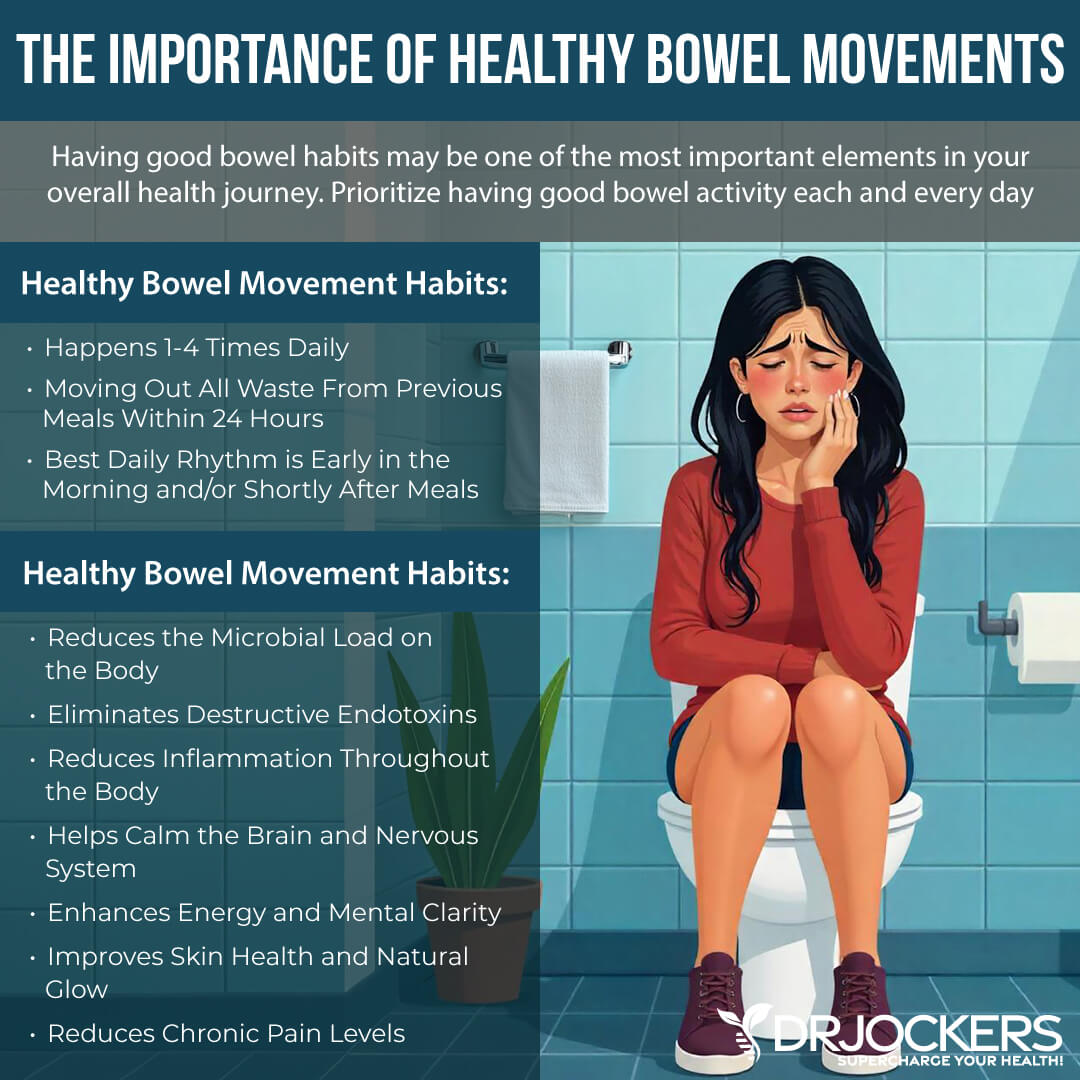
4. Fatigue
Magnesium is highly involved with energy production. As mentioned before, the mitochondria in your cells heavily rely on magnesium to produce energy (4). Your mitochondrial function primarily determines your energy levels. Additionally, magnesium supports the adrenal glands, which can play a huge part in energy production as well.
And the kicker… because magnesium is involved in so many enzymatic processes in the body, a deficiency will make it harder to perform over 300 normal processes. This acts as a chronic stressor on your body and drains your energy!
If you are chronically fatigued, you may have a magnesium deficiency, and increasing your magnesium intake can improve your energy levels drastically.
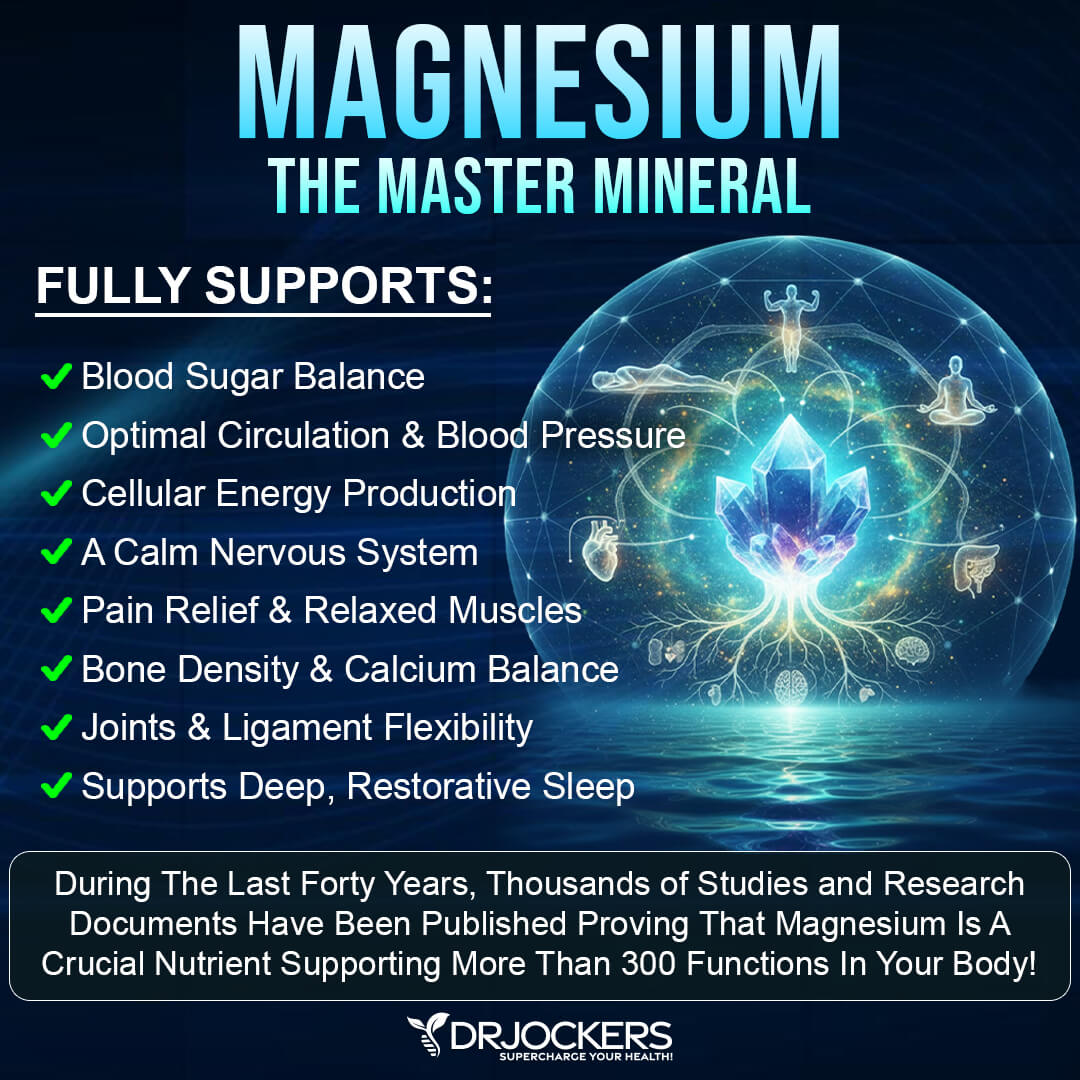
5. Insomnia
Insomnia is one of the big conditions I see a lot of improvement in when beginning magnesium supplementation. This is because magnesium is involved in the production of GABA in the brain. GABA is what is known as an inhibitory neurotransmitter. This just means a chemical that promotes relaxation.
If you don’t have enough magnesium to produce adequate amounts of GABA, your sleep will likely suffer. Although there are other nutrients involved with GABA production, magnesium is a critical factor that will heavily determine your sleep quality.
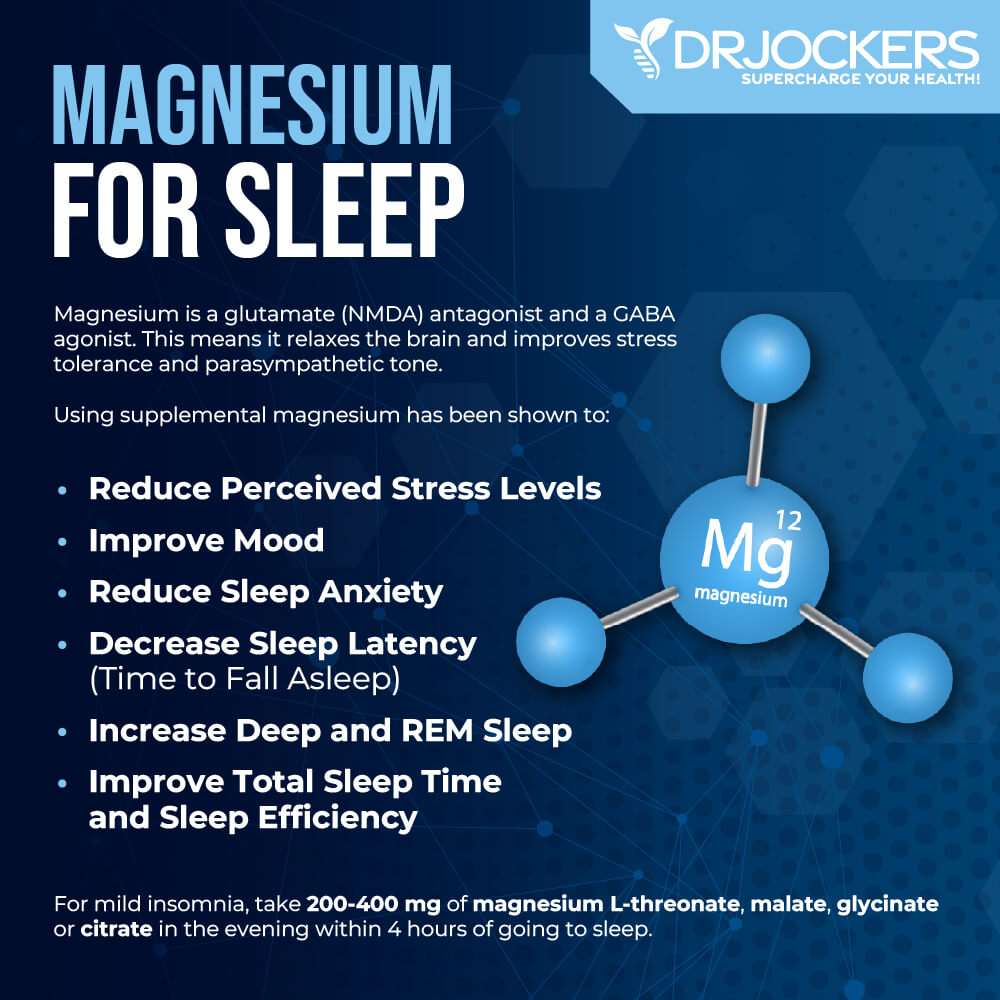
6. Muscle Spasms & Cramping
Because magnesium is so important for proper nerve transmission, it comes as no surprise that it also plays a vital role in muscle contraction. When magnesium is depleted, muscle contractions can become weak and uncoordinated, leading to involuntary spasms and painful cramps.
This is actually one of the most common early signs of magnesium deficiency. Spasms typically occur in the legs, feet, and sometimes even in places like the eyelids. If you are a woman, you may also experience worsened PMS-related cramping when magnesium stores are low.
7. Chronic Pain & Fibromyalgia
Chronic pain and related conditions like fibromyalgia are heavily related to tension carried in the body. This tension can be purely physical, but can also be aggravated by emotional stress as well. Emotions such as anxiety, anger, and worry all contribute to physical tension. Over time, this chronic tension leads to pain.
When magnesium stores are low in the body, the nervous system can become hyperexcitable (meaning easily overstimulated), which can increase muscle tension. Magnesium can play a role here by helping to elicit an overall calming effect on the mind and body while soothing and relaxing the muscles.

8. Heart Arrhythmia
The heart is a muscle that constantly contracts inside our bodies without needing to be consciously controlled. Just as with other muscles in the body, the heart relies heavily on magnesium for proper contractility. This is thought to be due to its role in regulating calcium and potassium concentrations in the muscle tissue (5).
If you notice that your heart beats irregularly, magnesium may be something to address. This includes rapid heartbeats, slow heartbeats, and sudden changes in heart rhythm for no apparent reason.
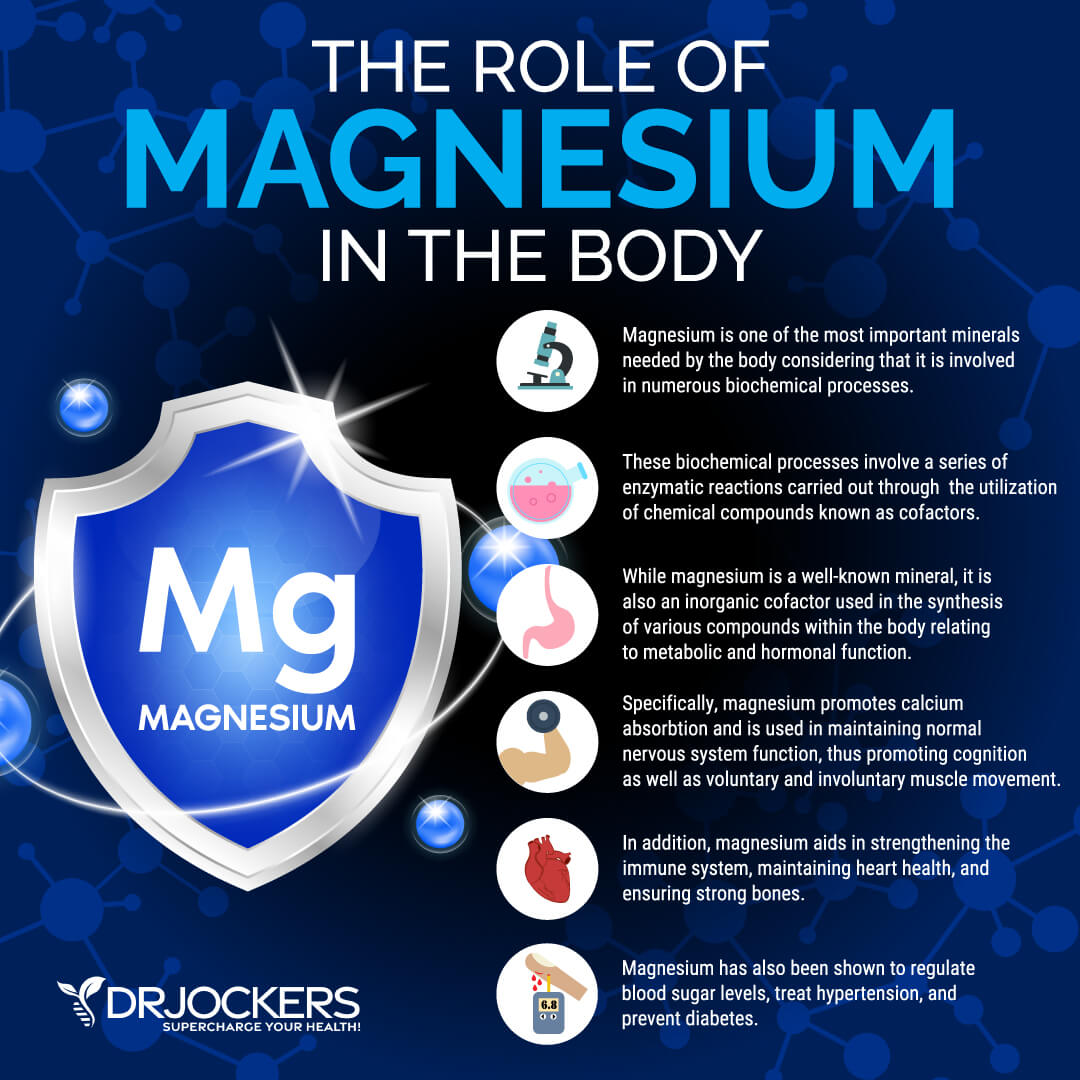
9. Numbness and Tingling
If you often feel numbness or tingling sensations in your body, such as in the hands and feet, this is likely due to a change in nerve activity. For example, peripheral neuropathy (a common side effect of diabetes) is characterized by these sensations.
Because of its role in healthy nerve transmission, magnesium deficiency may be at least in part playing a role here. Limited research has been performed on this mechanism specifically, but some studies have shown that magnesium may be able to relieve or prevent numbness and tingling in the extremities.
This effect has been highlighted in research showing protective properties against peripheral neuropathy induced by certain cancer therapies (6).
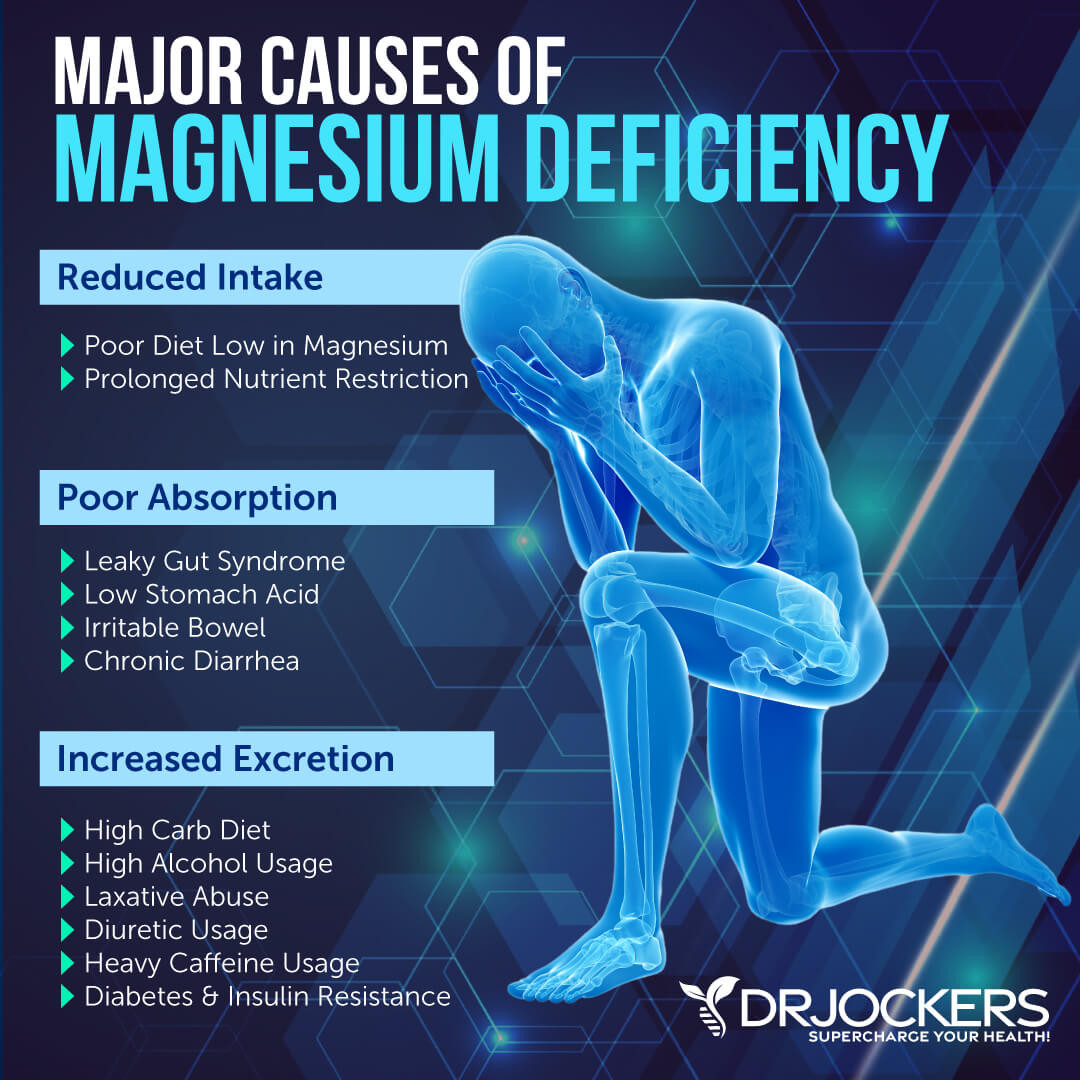
10. Mood Disorders
Magnesium plays a crucial role in regulating neurotransmitter balance. Neurotransmitters are chemicals in the brain that regulate thought patterns and behaviors ranging from motivation to sleep to focus (and many more). As mentioned before, magnesium is particularly involved in GABA production in the brain, which is a calming neurotransmitter.
A poor ability to produce adequate GABA in the brain results in conditions such as ADD/ADHD, anxiety, irritability, and general mood imbalances. If you identify with these feelings regularly, you should consider increasing your daily magnesium intake.
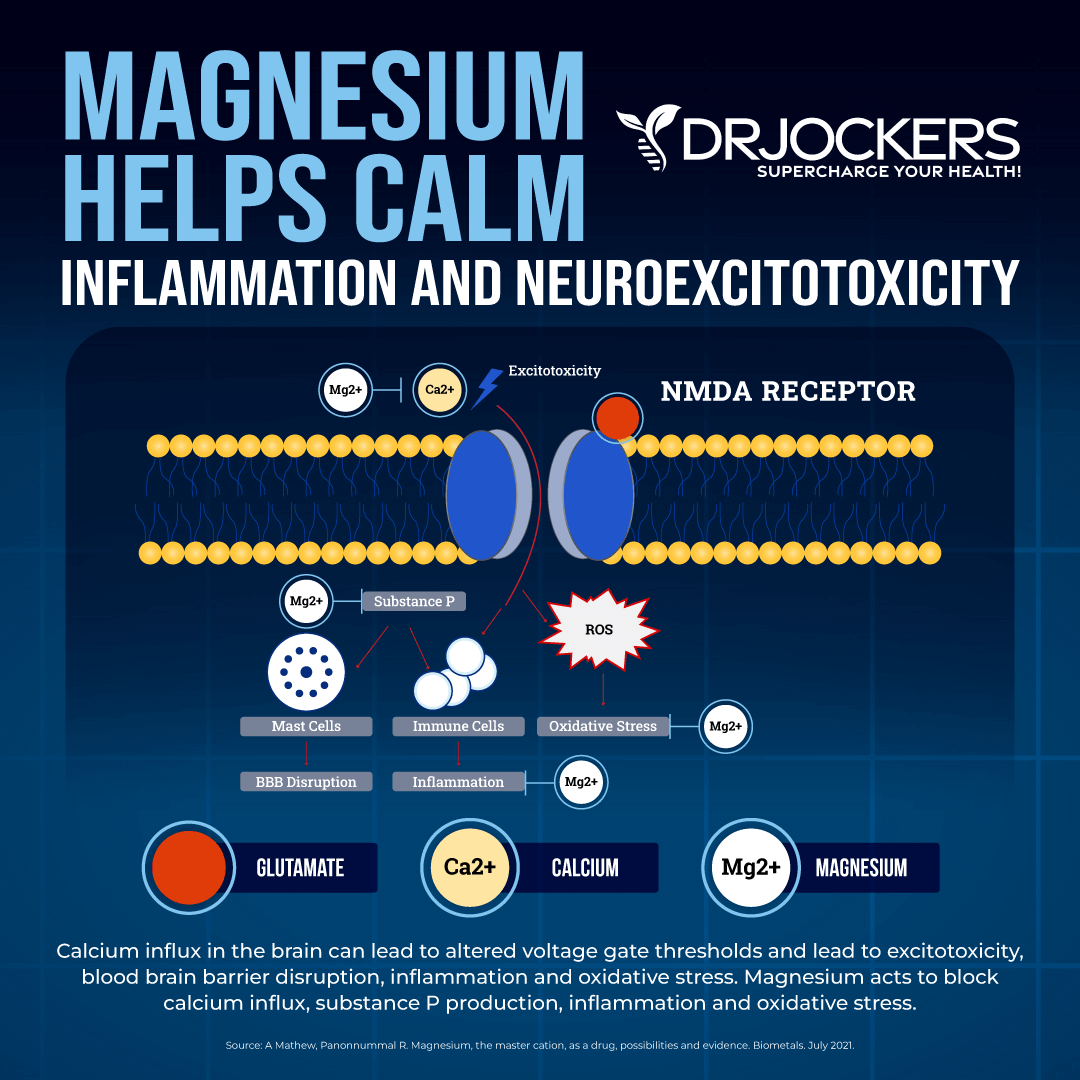
3 Ways To Support Magnesium Levels
Now that you know the signs of magnesium deficiency and just how important this mineral is for the human body, it is important to understand the best ways to obtain it. Follow these 3 strategies to boost your magnesium levels and do your health a tremendous favor.

1. Magnesium Rich Foods
As with most nutrients, I always recommend starting with your diet. There are plenty of great food sources of magnesium that are easy to incorporate into your daily life. Some of my favorites are avocados, leafy green vegetables, and raw chocolate.
I’d recommend picking a few high-magnesium foods and consuming them regularly. For example, I use avocados to make avocado chocolate protein pudding that I eat for lunch just about every day!
I have plenty more healthy recipes that feature magnesium-rich foods, such as:
Pick your favorites from the list below and come up with creative ways to get them into your diet every day!

2. Epsom Salt Baths
Perhaps one of the most relaxing ways to get more magnesium into your body is by taking an Epsom salt bath. Epsom salts are actually a form of magnesium that can be absorbed into the body through the skin while you soak. This is part of the reason why Epsom salt baths are so relaxing!
While traditional Epsom salts are made of magnesium sulfate, there are also newer forms of magnesium flakes that are made of magnesium chloride. Both types of salts provide benefits for the body; however, magnesium chloride may be able to provide longer lasting benefits. This is because magnesium chloride is both easier to absorb and slower to be excreted from the body.
This means that less magnesium chloride is needed to derive benefits. One of my favorite brands of magnesium flakes is Ancient Minerals, and their bath soak can be found here.

3. Supplemental Magnesium
When it comes down to it, our food supply just isn’t what it used to be. Industrialization and poor attention to soil quality have depleted our soil of vital nutrients that used to be passed into the food we ate.
Although we are starting to wake up to this fact and make more conscious efforts to create nourished farming conditions, our food is still lacking in the nutrition our bodies need.
This is why I recommend supplemental magnesium to so many of my patients. It is just so critically important to make sure you get enough magnesium in your diet that even I supplement with it every day.
Not all magnesium is made equal. Different forms of magnesium have different benefits; some are better for mental health or sleep, and others may have digestive benefits. Some are not bioavailable to your body and are effective in most cases.
I’ve discussed the benefits of different forms of magnesium in this article. Here are the best forms of magnesium for your brain, mental health, and depression.
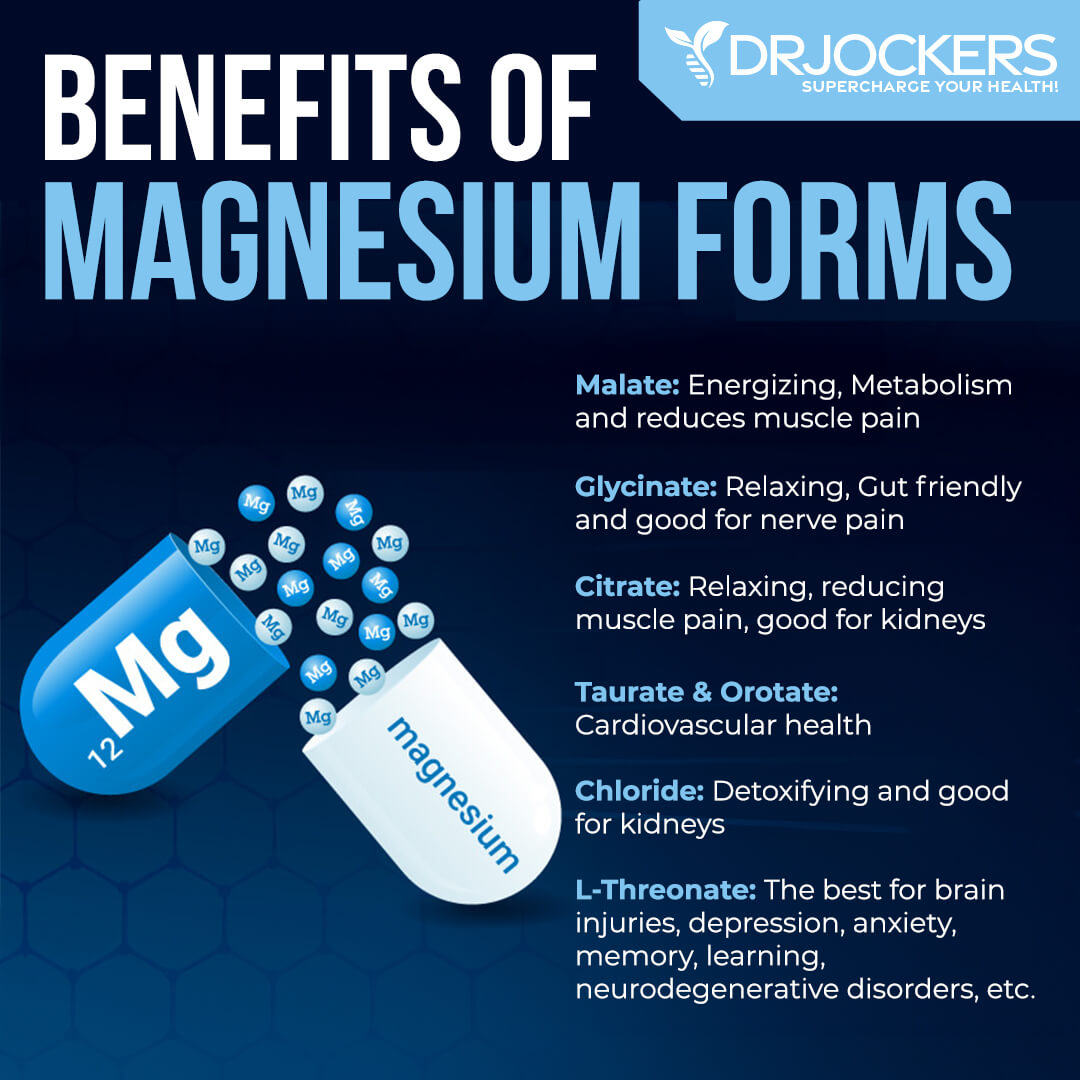
Magnesium Malate
Magnesium malate is a form of magnesium bonded to malic acid. Magnesium malate naturally occurs in many foods, especially in fruits. Malic acid is a key component of the Krebs Cycle, which is the biological process responsible for making ATP energy.
Thus, magnesium malate is a great option for improving energy-related disorders, including depression and chronic fatigue syndrome. According to a 2011 study published in Orvosi Hetilap, magnesium malate may help to support a healthy magnesium-calcium balance (7).
Magnesium Glycinate
Magnesium glycinate or chelated magnesium is made up of magnesium and the amino acid glycine. According to a 2017 review published in Nutrients, magnesium glycinate is one of the most bioavailable forms of magnesium (8).
Magnesium is a gut-friendly magnesium that’s also great for digestive issues. It is the most commonly recommended option for hypomagnesemia or clinically diagnosed magnesium deficiency.
Magnesium L-Threonate
Magnesium L-threonate (MgT) is a newer form of magnesium that’s commonly used for brain and mental health, including depression, anxiety, brain fog, cognitive performance, learning, and memory. According to a 2014 study published in Molecular Brain, magnesium threonate may offer neuroprotective and cognitive-boosting benefits that may be protective against Alzheimer’s disease (9).
A 2011 study published in the Journal of Neurosciences found that magnesium L-threonate may help to support NMDA receptors (NMDARs) signaling, BDNF expression, and synaptic plasticity (10). A 2019 comparative study published in the Pakistani Journal of Pharmaceutical Sciences found that magnesium L-threonate supplementation may help to improve oxidative stress and neurobehavioral activities (11).
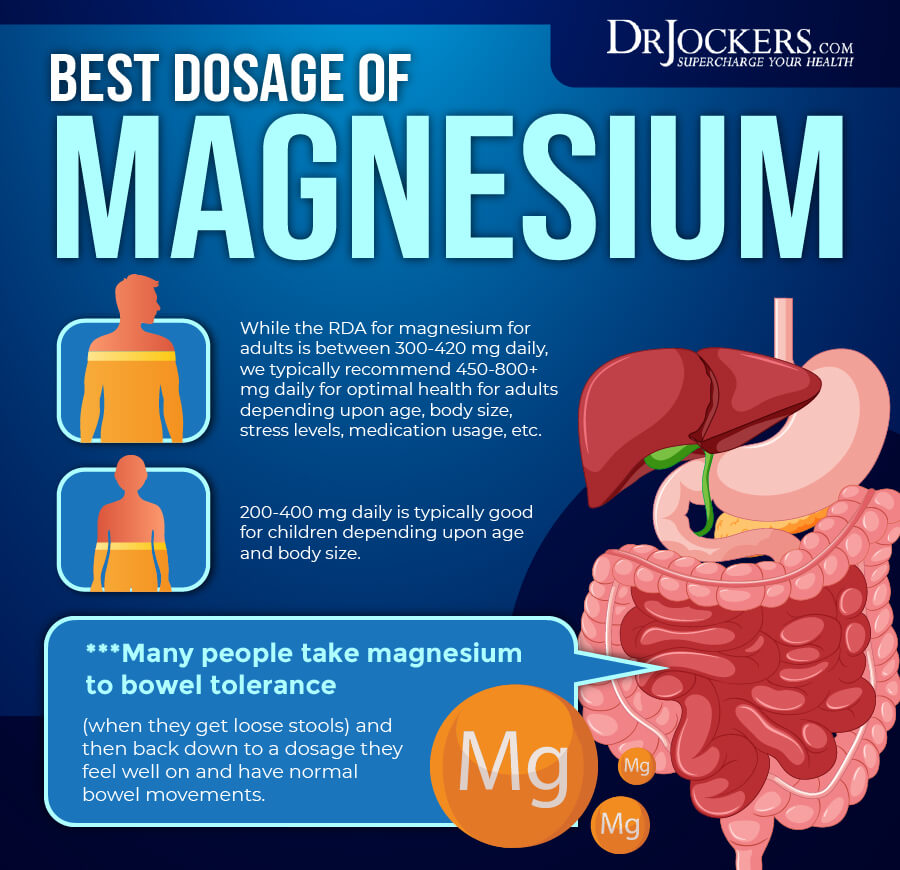
Transdermal Magnesium
Transdermal magnesium comes in a lotion that can be applied to the abdomen or areas of pain for quick absorption that bypasses the digestive tract.
This is important, especially in cases where the digestive tract is damaged or compromised and cannot absorb magnesium properly (such as leaky gut). The Ancient Minerals Magnesium with MSM product is a great transdermal lotion that works quickly and effectively. It contains magnesium as well as MSM. which helps reduce pain and inflammation, and this is a great product to use on sore and painful joints and muscles.
I also like the Ancient Minerals Goodnight lotion, which contains transdermal magnesium with melatonin. This is a fantastic product to put on the soles of your feet and on your upper arms before bed to enhance sleep quality.
Introducing Brain Calm Magnesium
I recommend Brain Calm Magnesium. We developed Brain Calm Magnesium to provide the best form of magnesium to improve brain function and neuronal health. This product helps you to focus, concentrate, and perform at a significantly higher level. In addition, it is fantastic for reducing anxiety while improving mood, memory, and sleep.
Brain Calm Magnesium features key Albion forms of Magnesium (malate, lysinate & glycinate chelate) as well as magnesium L-threonate, the only form of magnesium proven in animal studies to cross the blood-brain barrier. Boosting the brain’s magnesium level is vital to healthy cognition, which includes long- and short-term memory, learning, stress management, and sleep.
Because many forms of magnesium have low bioavailability, we carefully selected magnesium compounds backed by research and studies to formulate Brain Calm Magnesium. This product features a unique combination of highly absorbable, organic Albion minerals—di-magnesium malate and magnesium lysinate glycinate chelate—and Magtein.
Magtein is a groundbreaking organic magnesium compound that was developed by MIT (Massachusetts Institute of Technology) researchers to support “brain power.”
Magtein is the result of 10 years of research at MIT. This novel form of magnesium is changing the way we support brain health. Unlike other brain products on the market that work via brain stimulation (often overstimulation), Magtein works via a completely different mechanism.
When brain magnesium levels are not optimal, synapse function deteriorates. By delivering magnesium into synapses, Magtein helps brain cells stay healthy without being overactivated; consequently, brain cells respond to signals with clarity and robustness.
Brain Calm Magnesium supports healthy brain magnesium levels, healthy synapse number and function, supports memory and cognitive acceleration, supports stress management, helps sleep quality, supports a healthy mood, and ensures optimal magnesium intake.
I use Brain Calm Magnesium daily myself during the daytime to improve my concentration and productivity. I also take some at night and have noticed much deeper and more restorative sleeping patterns. I use this product with clients who are struggling with neurodegenerative issues, mental clarity, sleep, and mood issues.
 Final Thoughts
Final Thoughts
By now, you understand how important magnesium is for the human body. Even if you do not have any of the common symptoms of magnesium deficiency listed above, just about anyone can benefit from additional magnesium in the diet.
I use magnesium every day as I find that it helps keep my mind at ease and my energy levels balanced. It also has the cool effect of acting as an adaptogen by improving your body’s ability to adapt to everyday stressors. It truly is a modern-day health tonic!
If you want to work with a functional health coach, I recommend this article with tips on how to find a great coach. On our website, we offer long-distance functional health coaching programs. For further support with your health goals, just reach out, and our fantastic coaches are here to support your journey.
Inflammation Crushing Ebundle
The Inflammation Crushing Ebundle is designed to help you improve your brain, liver, immune system and discover the healing strategies, foods and recipes to burn fat, reduce inflammation and Thrive in Life!
As a doctor of natural medicine, I have spent the past 20 years studying the best healing strategies and worked with hundreds of coaching clients, helping them overcome chronic health conditions and optimize their overall health.
In our Inflammation Crushing Ebundle, I have put together my very best strategies to reduce inflammation and optimize your healing potential. Take a look at what you will get inside these valuable guides below!
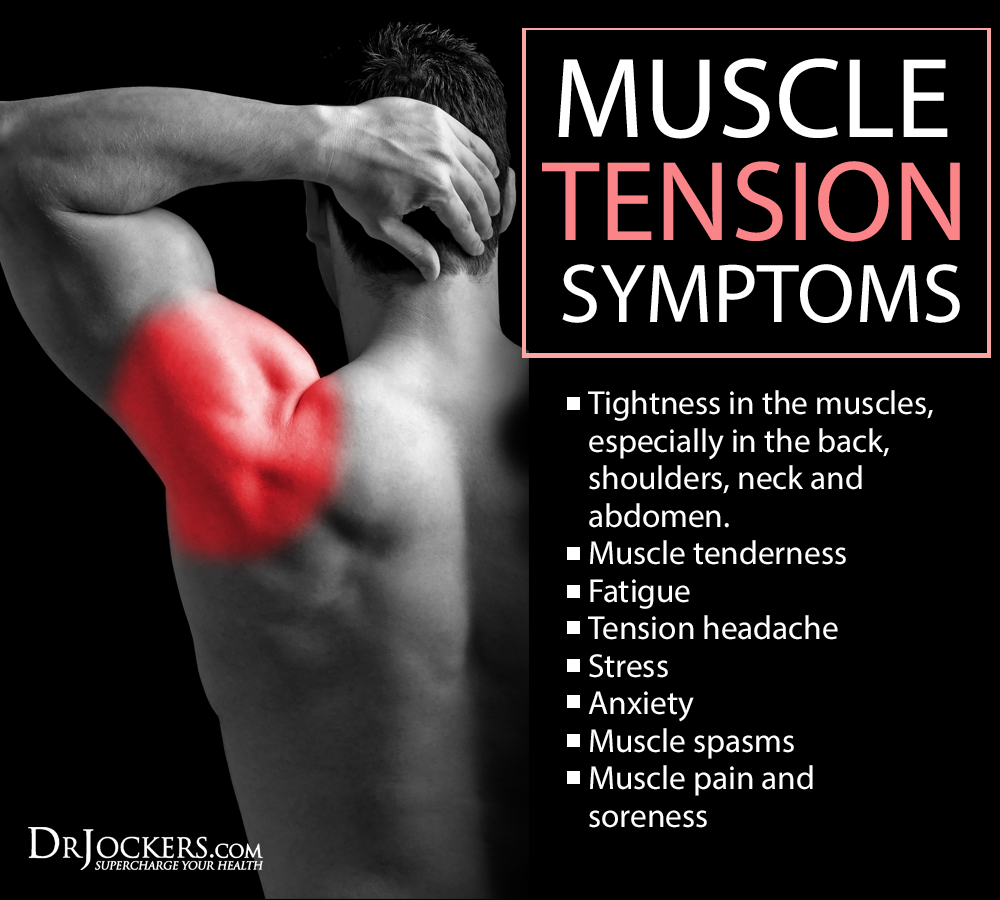







The link for the transdernmal patch is missing
Hey Jan!
It is actually a transdermal lotion so the link is correct. It is the same as this one: https://store.drjockers.com/products/magnesium-oil-ultra-msm
Excellent article, packed with information.
Glad you found it helpful Jill!
You always share excellent in-depth information. Thank you, Dr. Jockers!
Thank you Ellen!
Is OTC Magox400 ok ,I have Afib, take blood thinners and Anxiety
Outstanding information and outstanding presentation!
BUT ! !
Why don’t you please make it available in PDF [Portable Document Format] ? ?
I have an app (Calibre) in which I can save PDFs (but not HTMLs) for rapid access and reading.
I beg you, please easily convert to PDF and add that to your inventory of available info.
Copy & paste the article to convert it to word document then convert it to pdf.
I agree (late in replying!). I do it ALL the time. Quick and easy to save in a document file. I hear too many complaints about printing too, because it prints all the pictures, etc. that are not needed. So Copy and Paste!!!
Wow, great tip … I will use this transfer process often. Many thanks!
There are several programs for printing web page into
a .pdf file. I use PDFreDirect (Free Program) worked
very well for me to keep a quick reference of this article.
Thanks for sharing Dean!
Is there a standard lab test to determine if you are deficient in magnesium?
For some reason, I cannot pin this article to Pinterest. It keeps saying pin not found.
I’m not surprised, b/c there is a real effort out there to keep true healing information off of websites like Pinterest! Several places that I go to were kicked off Pinterest~! GreeMedInfo.com being one of them. Very sad police state we have going, but big Pharma gets sufficiently worried about their bottom line when people find ways to heal themselves naturally instead of covering up the symptoms of disease with their medications.
Hey Dee Dee, It is unfortunate how the internet is being censored. Thanks for your support and visiting our site! Blessings!
I can’t wait to tell my sister that you answered me in person! : )
I think you are THE top Keto-Hero in her life!
Showers of blessings to you and your family, also!
dee dee
Of course! Thank you Dee Dee!
Thanks Dr.
It`s a great article
What is the difference between L-treonato and magnesium oil
Hey Pascual, L-threonate is ingested orally and is able to cross into the brain. The magnesium oil is applied to the skin and absorbed into the blood but may not get into the brain as much.
to Lynn Ferris – Seaholm High School,
Hi Lynn, Unfortunately, I do not have a FB acct, thus I couldn’t answer you directly above as a “reply”, but the Keto eating plan is for everyone’s benefit, not just for Cancer patients. It helps to remove fat from around your organs, helps stabilize your blood sugar and insulin resistance, improve memory fog, assist with turning your body into burning the fat, and helps with a myriad of other potential issues and ailments. I have been doing it for 2 months and feel remarkably better, have lost some weight (YIPPEE) and find many other things better about my health including cholesterol count (LDL) being down.
I hope that you will consider doing the Keto diet. I do it in moderation, meaning that I do not presently use a Chronometer APP to count my carbs, protein, fats, etc, but do use some Ketone test urine strips to validate that I am in Ketosis state, even if not at the highest level, which is where a Cancer patient needs to be in for remission to occur.
Alma: I’m glad that I found your answer here about the ketogenic diet and what it is good for. It has cleared everything up for me and why I would want to get my diet changed over.
I had no idea that it was good for removing the deep fat around our organs and helps to stabilize our blood sugar.
I cannot wait to get started now; I need a great way to help me get started, step by step. Any ideas? Thanks.
Hi Rene, that is great to hear! We offer many resources about navigating the ketogenic diet. Here is an article that can help you learn more: https://drjockers.com/ketosis/
Thank you Dr. Jockers for this information about magnesium but i just want to know is there any test at all in order to find out if we have magnesium deficiency?
Question about supplements in the blood vs the cells. Had a SpectraCell test done recently. Even though my regular labs (blood) show a normal level of Vit D, The SpectraCell test showed that most of the supplements I am taking are not getting into the cells. How does that work?
How can supplements look ok on regular lab tests but the cells are starving? I take A LOT of supplements. All that money spent…sigh.
This could be due to many factors Marita including the forms of nutrients used, inflammation, liver health, sun exposure (in the case of Vitamin D), etc.
Marita, You may find useful info at the website Coffee with Dr Stewart and listen to the talk on autophagy. Genetically, some have decreased cell cleaning, which can lead to this type situation.
can we overdose on Magnesium?
I am now on Keto and my cramps and spasming has got a lot worse. I understand this may be due to low potassium but find it very hard to get enough potassium into my reduced food intake (intermittent fasting) when a lot of fat reduces the amount of food each (2) meal. I feel like increasing the magnesium capsules but haven’t enough knowledge.
The most common sign that you are taking too much magnesium is loose stools so that will be how you know you are taking too much. Be sure to also consume 1-2 teaspoons of a high quality salt each day. You can add to water or on food. Drinking plenty of water with some salt during the IF period can be very helpful! I like Celtic Gray Sea salt as it has a good mineral profile.
Good afternoon,
Because I’m having a problem swallowing the capsules now at my age(86) but oh so young at heart ) I’m needing to know when I break them into my health drink each day am I loosing some of the strength of the suppliment ? I would so like an answer to this issue.
AS of now I do not use your suppliments because I just started getting your web sight and am so amazed.But I see some already I’m going to order. I’ve been using Andrew Lessmans Pro Caps..he has his own factory and has been doing this since his teens.Perhaps you have heard of him. Top of the line products. He is in Henderson, Nevada.
Wit to hear from you. have a Blessed day…Shirley
Breaking open the caps and adding them to your drinks should be no problem Shirley!
Which form of magnesium is best for fibromyalgia? I’m rotating malate, glycinate and threonate…
❤️❤️
Whenever I take supplemental magnesium it seems to have the opposite effect on me. It actually causes leg muscle cramping at night. My lab magnesium is normal. Why do you think it would actually cause muscle cramping?
I have not heard of this! You could try topical magnesium instead!
Hi,
This can be caused by an imbalance of magnesium to calcium. Most people are consuming enough calcium to balance their magnesium, but in the case a person is not, supplementing magnesium can cause calcium deficiency symptoms. They work together. Excess magnesium to calcium can also cause insomnia. It’s all about balance.
I also get terrible cramping in my legs and feet at night when I take magnesium. I tried SloMag which also has calcium, but that too gave me cramps so bad it would turn my ankle inward, which would then take 10 minutes of walking on it to loosen the cramp enough to get my foot flat on the floor again. The cramping only happens when I take magnesium.
Sorry to hear that Donna!
Thank you Dr. Jockers for another amazing article, getting this much needed information out to people. You’ve helped me help my patients (and myself) in many ways, thank you!
Thanks for reading Jennifer!!
I was told by another natural doctor that Magnesium Glysenate also crosses the brain barrier. Is this true?
Hey Cindy, to my knowledge L-threonate is that best at doing this. Here’s a helpful article: https://drjockers.com/best-magnesium-supplement/
I was told by my Dr to stop magnesium because I have problem with night diarrhea. My legs are sore to touch and my chiropractor told me to take magnesium! So not sure what to do.!
is it possible to be ketogenic for high Lpa and APOE 3/4 but not LOSE weight
it seems everyone on keto loses weight
It really depends. Here is a helpful article Amy: https://drjockers.com/weight-loss-hacks/
Great article. Although I should mention there was a recent 2017 study (linked below) that actually examined the effiacy of transdermal magnesium and it seems to point to the conclusion that it isn’t really isn’t absorbed that much. I remember reading about magnesium oil a while ago and rushed out and bought two 8lb bags of magnesium chloride flakes to make my own, practically reeling in excitement from the possibility of supplementing my magnesium-poor diet through a daily foot bath, how simple! Turns out, it seems to have been marketing for an otherwise barely-effective product. Despite this, you’ll see countless anecdotes on Amazon extolling the benefits for everything from mood, to sleep and skin conditions. Placebo effect? I hate to be the type of person to discount personal anecdotes because they are vitally important imo, but it does cause me to tread more carefully. At the very least, if we’re going to be 100% science based, it’s probably better off getting your magnesium from oral supplements and diet since those methods are actually supported by science.
— NOTABLE EXCERPTS from: https://www.ncbi.nlm.nih.gov/pmc/articles/PMC5579607/ —
1. “The stratum corneum functions to form a water-repellent barrier to protect underlying tissue from infection, dehydration, chemicals and mechanical stress [9]. Overcoming this layer in significant quantities is only possible for lipophilic substances. In magnesium chloride solution, magnesium is present in ionized form and therefore not able to penetrate a lipophilic layer. In addition, the radius of the hydrated magnesium ion (86 pm) has been reported to be 400 times higher than its dehydrated form, leading to the assertion that it is almost impossible for magnesium ions to pass through biological membranes [2].”
2. “In this two-week pilot study, transdermal delivery of 56 mg Mg/day (a low dose compared with commercial transdermal Mg2+ products available) showed a larger percentage change in both serum and urinary markers from pre to post intervention compared with subjects using the placebo cream. However, based on this data from the original abstract, Kass et al. only show a slight increase of serum magnesium via transdermal magnesium-containing cream.”
3. “One of the first studies on transdermal magnesium absorption was published by the naturopathic doctor and founder of the American Holistic Medical Association Norman Shealy, M.D. Ph.D in 2000. He was an early advocate for the particular benefits of transdermal applications of magnesium [12]. Shealy argued that a magnesium deficiency can be compensated by transdermal application within 4 to 6 weeks, whereas an oral supplementation is effective only after 4 to 12 months. A full publication of this comparative study could not be found. Only an abstract for a conference was published not showing any additional data to substantiate this statement [7].”
Thanks for sharing Andre!!
Just a personal testimonial, so no stats, but…
I use a magnesium gel occasionally for insomnia, and if I use it more than 2-3 nights in a row, I get diarrhea in the early morning. I also used to take epsom salt baths for neck and shoulder pain, and found the same — if I did them too frequently, I got loose stools. And it wasn’t a placebo effect because at the time I had no idea that magnesium could be used as a stool softener. I looked it up after had that symptom a couple of times. So, everything in moderation for me now. I am also very sensitive to most things, so my example won’t apply to most, but for me it’s proof that the absorption through skin does work. And anytime I can take less through my stomach is fine with me!(Maybe the people in the study had absorption issues, or the cream doesn’t work as well…)
Thanks for sharing!
Isn’t calcium, Vit-D3 & Vit-K2 required to assimilate magnesium?
No they are not required to assimilate magnesium.
Magnesium helped me so much. I soaked in Epsom salts every evening when I was bedridden with Scleroderma. The topical magnesium oil took about two months to really work, but not having the
numb fingers, debilitating headaches and knotted calves is heavenly. It seems I just happen to like
all the foods that are high in magnesium so I drink coconut water with organic pineapple for some
potassium. This is an important article; magnesium is a solution for many ailments. Thanks!
Great to hear that and thanks for sharing Nora! Blessings!
Hello I listen to your podcast on my way to work and is very much interested! my mom has heart disease and is on coumidin so she is not able to eat a lot of foods that is good for her she is experiencing memory problems amongs many other things I think that she is lacking magnisium ! What would be the best form for her and where can I buy it
Yes, I would recommend Brain Calm Magnesium here: https://store.drjockers.com/collections/top-sellers/products/brain-calm-magnesium
I have Gastritis and insomnia My Blood Report says I have enough magnesium.
Hey Pauline, I am sorry to hear about this! Various factors can cause gastritis and insomnia including gut dysfunction and adrenal problems. These articles may help: https://drjockers.com/11-hidden-causes-insomnia/, https://drjockers.com/damaging-effects-h-pylori-infections/
Hi, As Pauline states I, too have chronic gastritis. Last week my gastroenterologist checked my stomach and esophagus through a endoscopy procedure I, received results biopsy came back clear of H pylori. So what else would cause chronic gastritis? So reflecting I thought maybe my bariatric surgery in 2018 left thickening to the stomach wall or could be autoimmune my other thoughts were the hatial hernia. What are your thoughts. I, had also A colonoscopy with one polyp removed other than that end was clear still waiting on biopsy. What are thoughts respectfully.
Sorry to hear this! Here is a helpful article on gastritis that answers your questions: https://drjockers.com/gastritis/
Which form of magnesium is best for ADHD?
The Magnesium L-threonate!
Hi,
Have been doing Intermittent fasting for about 4 months, my window is 20 hours before feeding. I do HIIT and weight training about 3 to 4 times a week twice a day. I started my weight loss at 215, and now I’m 169. For weight loss and medical reason, I have been juicing all my vegetable and with maybe 3 ounces of meat for protein per day. I will be doing this for 30 maybe 60 days, and I feel find. My question is, will this affect me build muscle and losing weight, while doing this kind of fast. I have been told that I have to lay off meat to get the most out of me health in regard to my medical condition. Can I lay-off protein while doing weight training for health too.
Hey Freda, If you are doing resistance training and HIIT you will need more protein. Typically between 1 – 1.6 grams per kg of body weight. Meat is one of the best sources but you can also use eggs, nuts/seeds and a vegan protein powder such as our Super Digest Protein.
Hello dr.
My wife has developed bladder stones. We r on a plant base diet.
Eating a lot of Brazil nuts and walnuts and a lot of asparagus. Etc.
R we eating too much calcium that recreated this? Thx dr.
vitamin k2 is responsible for placing the calcium where it belongs, a deficiency can cause all sorts of calcium problems.
Hey Eric, I am sorry to hear! A variety of issues may have caused gallstone formation. This article offers insight and strategies to break up gallstones naturally: https://drjockers.com/beat-gallstones-naturally/
Hi Doctor. What are the doses you recommend for magnesium supplements? Is there a difference in the form of the supplement? (threonate glycinate malate oxide orotate chloride sulfate taurate).
That is a great question Mordchai! I actually go into detail about the difference in supplemental magnesium forms in this article here: https://drjockers.com/best-magnesium-supplement/. I recommend following the dosage protocol directed by the supplementary guidelines under supervision of your doctor.
I don’t think it’s a case of deficiency as in deficient diet, but likely a case of increased need (various stresses of civilization). This is not really the same thing: some people’s symptoms don’t improve unless they start a program of taking huge amounts of Mg thru supplement and high-Mg foods – quantities that no one anywhere on this planet has ever consumed since the Fall of Man (or the Big Bang or Day One or whatever your beliefs are).
Thanks for sharing Samia!
so i watched your videos and noticed that you you chrome, which is actually a spy browser, and using google is just like going to big pharma for a cure..
Thank you for the information Vacheslav!
welcome
I have 2 boys, 15 &12, both athletes (soccer & basketball). Both are tall and lanky for their ages, 6’2 and 5’8, respectively. I think Mg supplement would help both but they are against taking pills (still). What would you recommend for their ages?
I would recommend giving them a scoop of the Brain Calm Magnesium powder which has a great flavor they will enjoy! The mixed berry is very popular and I love the Lemon Lime. https://store.drjockers.com/products/brain-calm-magnesium
is there any plain, I am allergic to flavorings, corn, dye , titanium dioxide and sugar. Do your products contain those?
Yes absolutely! https://store.drjockers.com/products/brain-calm-magnesium-capsules
Hi,
Great article thank you. I have been doing some research because my husband has AFIB and has had a cardio version & an ablation to try to get back to a normal heart rhythm which neither has worked out & believe he has a possible magnesium/postassium deficiency & found out that common blood tests are poor indicators of your Magnesium and potassium levels because Magnesium and potassium do their work inside the cell (intracellular), not in the blood.
Blood “serum” levels of Magnesium are misleading. They remain relatively stable (at about 1%), even when working intracellular magnesium levels are low. (The body “robs” stored Magnesium to maintain the 1% level in your blood. Not good.)
There is a test called the EXAtest” (https://www.exatest.com/index.html). Unfortunately few doctors provide this test.) It tests intracellular mineral electrolyte levels and is considered the gold standard for magnesium testing. It gives you a true and accurate picture of your magnesium levels because the magnesium is measured in your cells where 99% of your magnesium stores are.
In addition to giving you an accurate picture of your magnesium levels, it measures important electrolytes at the cellular level.
I wanted to know if you have heard of this Exa test & if you have any patients that have used the test.
Thanks
Thanks for sharing, and no we had not heard of this.
Magnesium Chloride is the best form for immune system strengthening; is this true?
No, this isn’t necessarily true. This article gives more info: https://drjockers.com/best-magnesium-supplement/
I used to eat a pound (!) of dark chocolate a week and drank 12+ cups of coffee a day. THEN I discovered magnesium supplements. Now I have no desire for chocolate and drink only 2cups of coffee in the morning. AND I no longer have migraines. Viva la Magnesium!
Awesome to hear that!!
How often should a magnesium chloride bath be taken when raising the magnesium levels in children? Every day? 2-3 times per week? And how much should be dissolved in the bath water? 1 cup? More?
Great question, I think 2-3 times per day with between 1/2-1 cup of Epsom Salt in it should be great. Here is a helpful article: https://drjockers.com/health-benefits-epsom-salt-baths/
Did I miss this in the article, but what is the best way to test for magnesium? I read that the serum test is not a true picture. Also, I have supraventricular tachycardia. Could this be caused by a magnesium deficiency? I am trying to decide on a path to correct this. Thanks
Yes unfortunately we don’t have a great way to test for magnesium levels but if serum levels are lower, than we know you are very deficient. We will also look at the liver enzyme GGT and if that is under 10, it may be a sign of a magnesium or B6 deficiency.
Hi Dr. Jocker,
I need some information on how to repair my gut. Where can I find this information?
Thank you for all these great health information. It is awesome!
Hello Paulette, yes here is a great article for you: https://drjockers.com/gut-inflammation/
I noticed at the store magnesium is combined with other substances like magnesium citrate magnesium oxide. Magnesium glucose etc ,which is best for heart block?
Hello Lewis, the best magnesium for the heart is magnesium malate or glycinate.
Will Brain calm magnesium help with muscle cramps and spasms? I get cramps all over my body…neck, legs, abs feet, arms
Sorry to hear this Donna! Yes, many of our customers report that the brain calm helped them get rid of the cramps.
Dr. Jockeys, I appreciate the knowledge you share. I too get cramps in several places despite adequate intake of different supplemental magnesium, quality water and food sources too. Could my body be blocking absorption somehow?
Yes it may be and you also may need a calcium/magnesium combo.
I am looking for an answer . After being exposed to water intrusion in my home and wet feet, from Hurricane IAN, my skin started to dry out and flake off. Looking for the cause and solution to fixing this problem. I am 90 years old and in otherwise good health. I exercise every day, walking or biking 10 to 15 miles. What supplements or foods would help?
Appreciate you help and suggestions.
Sorry to hear this! I would consider mold and mycotoxin exposure. https://drjockers.com/mold-toxicity/
I want to thank immensely for the informations you are giving us about health. They are well researched. God bless you tremendously.
Love this article! Which form of magnesium would you recommend as a possible help for migraines? What dosage would be safe to start with for a 27 yr old, 5’8″ 145 lb female? Thank you!
Unfortunately, we aren’t able to give specific medical advice in the online comments.
Thank you Dr. J. !!!
Nutritional
Functional practitioner DEFICIENCY
Dental
Please know how appreciative we are of yours and all the others work.
Reaching out because we believe 🙏
you had said something about the 12 important blood test but you did not list them?
I would like to know about them ty
Dr Jockey, Can you please tell me the difference between Brain Calm Mag pills vs powder. And if one product is better over the other with respect to Alzheimers. Also, are pills big or small? Thanks in advance. Looking forward to adding a mag supplement to my daily care.
Both are great! It is just a preference of whether you want it in capsule or in powder form.
I am currently taking Magnesium Glycinate (210 mg.) at bedtime. I still have leg cramps and trouble sleeping. After reading your article I see I should be taking about twice that amount. I also take a statin drug and blood pressure medication at night. Should I take the Magnesium at a different time? I take Calcium Citrate in the morning and am wondering if it’s okay to take calcium and magnesium at the same time.
I’m enjoying your articles and all the information provided. I just joined today. FYI, (don’t know if this is relevant to my question, but I’m 80 years old with Microscopic Colitis.)
Yes you can absolutely take them together and we recommend that.
Your comprehensive magnesium article is most informative. But it still leaves treatment decisions open to guesswork. The only way to definitively determine the status of any nutrient is through testing. Serum testing is no good for treatment because it remains within a close range. There is a 24 hour urine calcium test. Why is there not such a test for magnesium?
Thanks for this, super important for parents to be aware of for their kids especially those on the Autism Spectrum so we’ll share this with our network for sure.
This article is not as helpful as it could be. There are multiple forms of magnesium. What form do I need to take for which deficiency? That would be helpful.
Dr. Jockers,
Thank you for your comprehensive article on Magnesium! I use Mag Glycinate for leg cramping and chronic pain after a Calcaneous Fracture (1999) and the pain finally settled down. I see that Magnesium comes in so many different forms. To help improve other areas (brain, sleep) would it be wrong to rotate through several different varieties of Magnesium? I take 240 mg in the am and 240 mg at night. I also take B.P. meds.
Thank you, Doc, great info. Is there a supplement that contains all forms of Mg? Would such a thing be advisable? I could probably use all of them!